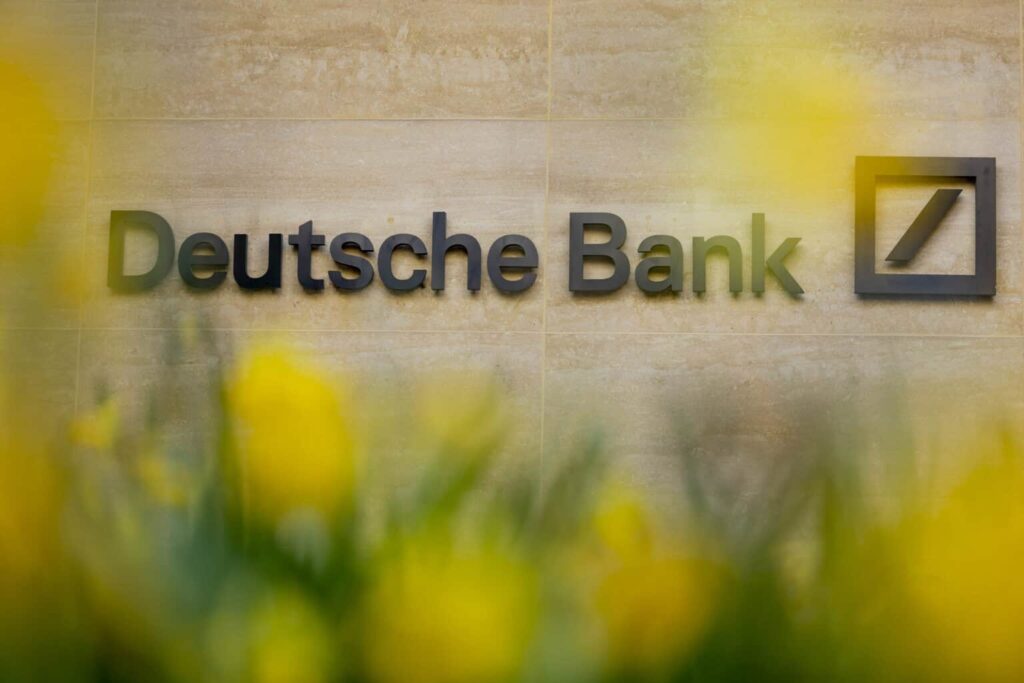Deutsche Bank Executive Says ESG Backlash Fades as Transition Strategies Gain Momentum

- ESG’s Resilience: Anti-ESG sentiment is waning as transition strategies broaden investment opportunities.
- Regulatory Shifts: Evolving regulations are redefining ESG, allowing for investments in sectors like fossil fuels under transition frameworks.
- Market Integration: ESG investing is deeply entrenched, even in politically conservative regions benefiting from climate policies.
The wave of anti-ESG sentiment is losing momentum, according to Markus Mueller, Chief Investment Officer for ESG at Deutsche Bank’s wealth management arm. “We have seen the trough in ESG fund flows,” Mueller stated, noting that the global backlash is diminishing.
Regulatory Evolution and Transition Strategies
Mueller attributes this shift to adjustments in regulations, particularly in Europe, the largest ESG market. These changes now allow investors to target a broader array of sectors, including fossil fuels, under so-called transition strategies. “Investors can now engage a broader range of companies and sectors,” he explained.
Political Tensions and Market Dynamics
ESG has been politically charged, especially in the U.S., where figures in the Republican Party have labeled it “woke” and anti-American. This tension led many on Wall Street to avoid the term, with BlackRock CEO Larry Fink remarking that it had become too “weaponized” for comfort.
Despite this, the concept of transition within ESG is gaining traction. It allows investments in high-carbon sectors, provided there is a focus on reducing emissions. This approach is part of ESG’s fastest-growing investment strategies, where investors hold oil, gas, and even coal assets if they help these industries decarbonize.
Mixed Sentiments and Strategic Shifts
Investor sentiment around ESG remains mixed. An HSBC survey highlighted that global interest in ESG has stalled due to more immediate concerns like war and recession fears. “It is difficult to prioritize long-term sustainability in the short term,” the HSBC analysts noted.
Nevertheless, Mueller insists that ESG’s financial relevance is clear, citing extreme weather impacts on key crops and the resulting cost pressures on sectors like consumer staples. “For example, consumer staples companies are facing record-high commodity costs,” he pointed out.
ESG’s Embedded Future
Mueller believes that whether the ESG label survives, the strategy is already deeply embedded in the market. He notes that Republican states are significant beneficiaries of the Biden administration’s climate policies, with four-fifths of investments from key climate bills going to Republican districts. “Even if Donald Trump should be re-elected as president, it will be difficult to fully repeal those,” he added.
Global investment in the clean energy transition reached a record $1.8 trillion last year, and with the ongoing overhaul of the EU’s Sustainable Finance Disclosure Regulation, the focus on transition strategies is expected to grow. The U.K., Singapore, and Hong Kong are also incorporating transition finance into their ESG regulations, signaling a broader acceptance and integration of these strategies globally.
According to BloombergNEF, the low-carbon transition has historically concentrated market share among early movers, creating challenges for legacy players. As transition frameworks gain prominence, investment strategies are becoming more differentiated, moving away from broad ESG labels. “Industry is getting real about what ESG economically means,” Mueller concluded.
Related Article: Deutsche Bank Launches BASF’s First Sustainability-Linked Payables Finance Program in Asia, Enhancing Supplier Sustainability
Deutsche Bank’s commitment to sustainable financing is evident, with €279 billion ($308 billion) in ESG investments by the end of last year, a figure the bank aims to nearly double by 2025.












